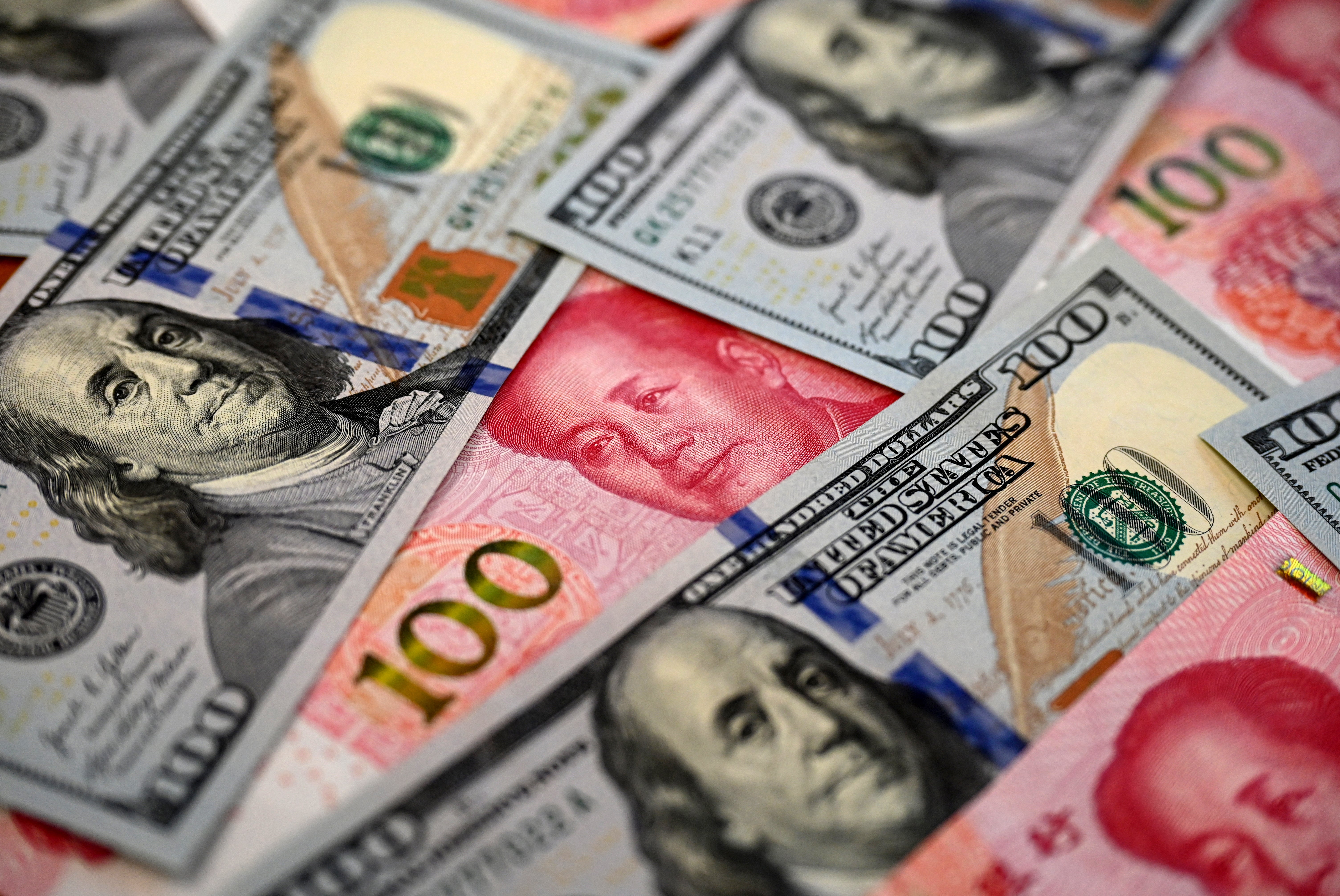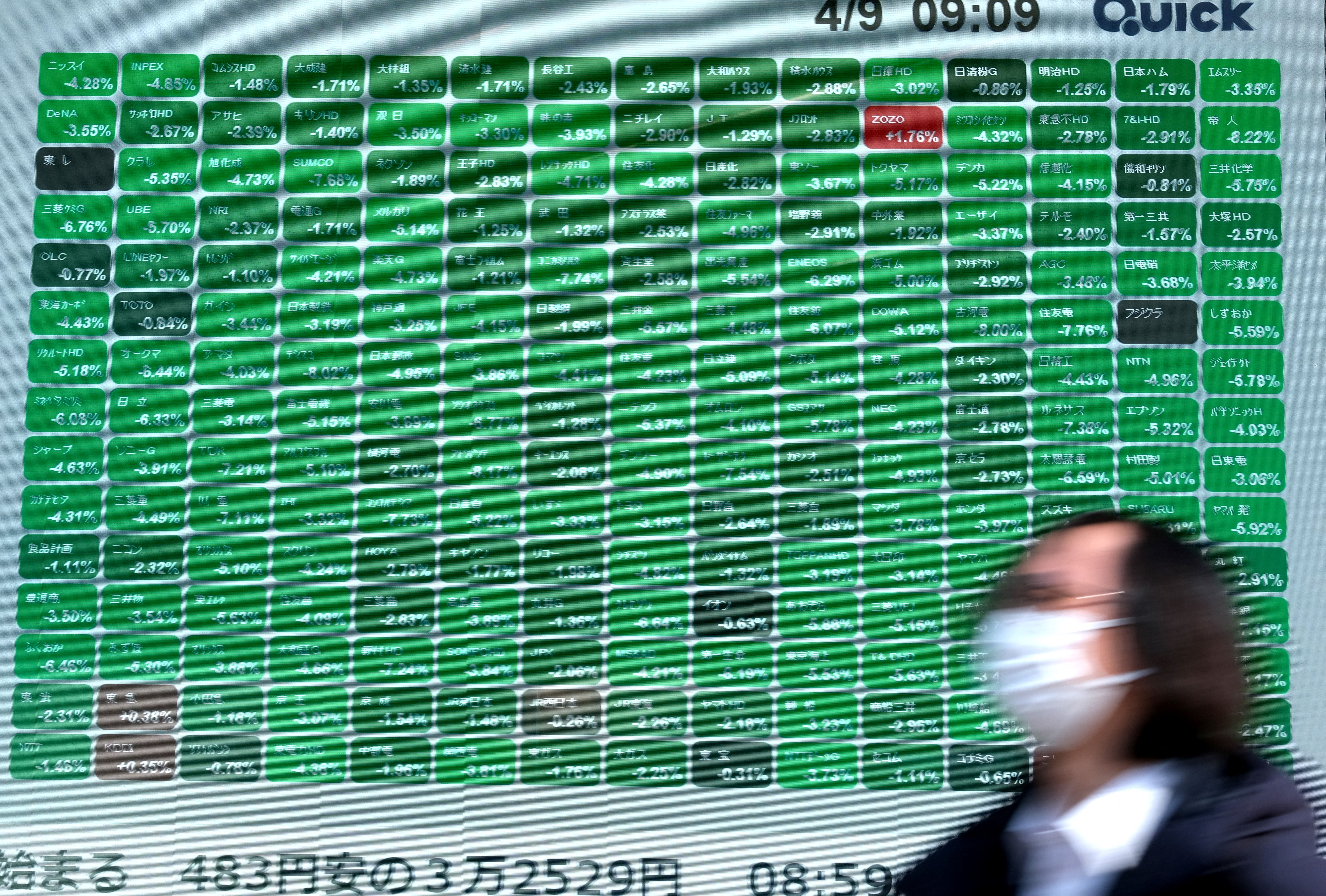Tariffs stay: Asian markets fall as Trump confirms China will face 104% levy in a single day
Asian markets fell again on Wednesday morning after Donald Trump confirmed his “reciprocal” tariffs would come into effect overnight, with Chinese imports facing an eye-watering 104 per cent levy.
Japan’s Nikkei index fell more than 3.5 per cent in morning trading, while South Korea’s Kospi has now plunged 20 per cent since its July high.
The White House confirmed that Chinese imports would face the new tariffs from 12.01am ET on Wednesday, after Beijing failed to remove retaliatory tariffs on US goods by a Tuesday deadline.
President Donald Trump had earlier threatened to raise levies by 50 percentage points on top of the existing 54 per cent, pushing total tariffs beyond the 100 per cent mark.
In response, China’s foreign ministry accused Washington of “typical unilateralism and protectionist economic bullying” and vowed to “fight till the end”. State media reports suggest Beijing may target US agricultural products, potentially banning poultry imports altogether.
The escalating trade war has shaken global markets, prompting a widespread sell-off and rattling investor confidence.
Asian stock markets open lower as China to be hit by 104% tariff
Asian markets opened down this morning as the White House was set impose its “custom reciprocal tariffs” regime, including a levy of 104 per cent on China.
Japan’s Nikkei index has plunged more than 3.5 per cent, extending its losing streak, while South Korea’s Kospi has officially entered a bear market following a 20 per cent decline from its July peak.
Technology stocks were the hardest hit on the Tokyo exchange. Semiconductor testing equipment maker Advantest slumped by nine per cent, and Tokyo Electron, which manufactures chip-making tools, shed 4.85 per cent.

Investor sentiment continues to sour amid growing fears of a global recession, triggered in part by the escalating US-China trade war.
Market anxiety deepened after president Donald Trump raised tariffs on Chinese goods to 104 per cent, fuelling concerns over the wider impact on international trade and growth.
Trump’s latest tariffs set to deepen global trade war
President Donald Trump’s “reciprocal” tariffs on dozens of countries were set to take effect on Wednesday, including massive 104 per cent duties on Chinese goods, deepening his global trade war even as he prepared for negotiations with some nations.
Trump’s punishing tariffs have shaken a global trading order that has persisted for decades, raised fears of recession and driven worldwide stocks sharply downward.
The S&P closed below 5,000 for the first time in nearly a year yesterday and is nearing a bear market, defined as 20 per cent below its most recent high.

S&P 500 companies have lost $5.8 trillion in stock market value since Trump unveiled the tariffs last Wednesday, the deepest four-day loss since the benchmark’s creation in the 1950s, according to LSEG data.
A sell-off across Asian markets resumed on Wednesday after a brief respite, with Japan’s Nikkei down over three per cent and South Korea’s won currency sliding to a 16-year low. US stock futures also pointed to a fifth straight day of losses on Wall Street.
China to be hit by 104% tariff tomorrow, White House confirms
The White House has confirmed that the US will impose a 104 per cent tariff on China from 12:01am ET on Wednesday.
Donald Trump’s press secretary Karoline Leavitt told reporters on Tuesday afternoon that the measures will come into place after Beijing did not lift its retaliatory tariffs on US goods by a noon Tuesday deadline.


